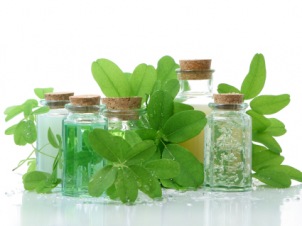Are Your Products Really ‘Natural’?
By Jessica, March 23, 2011

‘Natural’ is the new buzz word in skincare, but what does it actually mean? Brands often boast naturally derived ingredients, but neglect to mention the harmful synthetic ones they also use. It may seem like a lot of fuss about nothing, but consider that nearly everything we apply to our skin makes its way into our bloodstream in some way or other. You wouldn’t be happy eating potentially harmful chemicals in your food so why ingest them through your body’s largest organ?
Unfortunately there is no international body to regulate natural product advertising. Certifications do exist in some countries, but they vary and it is often difficult to ascertain their credibility. Below are five of the most common chemical additives to skincare products that you can look out for yourself, see why you should avoid them and how to spot them.
Parabens
Parabens are preservatives which extend a product’s shelf life. They are commonly used among many big-name skincare brands despite being proven to have hormone-disrupting effects. Topical parabens have also been detected in human breast tumours, leading to ‘paraben-free’ products becoming increasingly available. To see if they are present in your skincare products, simply examine ingredients lists for any words ending in ‘paraben’ (propylparaben, methylparaben etc.).
Sulfates
Sodium Lauryl Sulfate and Sodium Laureth Sulfates are harsh detergents used as engine de-greasers and industrial soaps. They are present in small amounts in many skincare products that foam and can damage cell membranes, strip skin of its natural properties and cause inflammation.
Artificial Colours & Fragrances
Artificial fragrances are often made up of thousands of different base ingredients, some of which can be carcinogenic (cancer-causing) or hormone disrupting with sustained use. The same goes for artificial colours, which can deposit toxins on to your skin. While these additions make a product look and smell attractive, they serve no therapeutic purpose. Avoid products which list ‘fragrance’ or any form of colouring as an ingredient unless it clearly states they are completely naturally derived.
Mineral Oil
Not to be confused with minerals, mineral oil is a common ingredient in cosmetic products and is often marketed as baby oil. Concerns have been raised over its use after various studies showed it to be carcinogenic in large quantities.
DEA (diethanolamine), MEA (monoethanolamine) & TEA (triethanolamine)
These ingredients are to be found in many products that foam and are known carcinogens and hormone disrupters. They have also been linked to developmental and reproductive toxicity.
Remember when checking product ingredients that they are listed in descending order of concentration, so the first ingredient listed is the one present in the largest amount. It’s not always easy to find products completely free from unwanted chemicals but a good rule of thumb is to stick to the ones with the natural ingredients listed first and chemical ones in trace amounts at the end.




